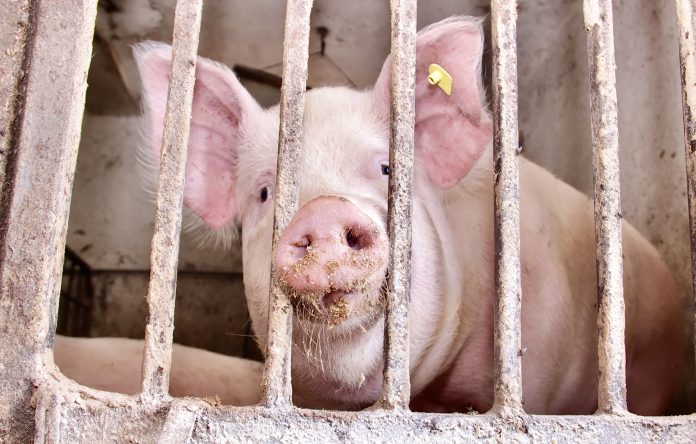
ASPCA Launches $100,000 In New Grant Funding To Support An End To Factory Farming In The U.S.; Submission Deadline Is July 18th
By Lauren Lewis
You can help all animals and our planet by choosing compassion on your plate and in your glass. #GoVeg
RELATED ARTICLES
Banning Cruelty: New Legislation Aims To Ban Octopus Farming In The U.S.
New bipartisan legislation has just been introduced in the U.S. to ban commercial octopus farming and prohibit imports of farmed octopus from foreign countries.
The...
Outrage In Yellowstone! Grizzly Bear Killed By Wildlife Officials & Left With Head & Paws Cut Off
Photo by: Trisha McFarland / Cowboy State Daily
A photo of a dead grizzly bear with its head and paws cut off has caused an...
Inside Florida’s Illegal Horse Meat Trade: Undercover Footage Shows Racehorse Being Shot & Butchered
A heart-wrenching discovery of illegal horse slaughter has emerged, with video footage exposing the tragic killing of a racehorse named 'Funny Biz,' who was...
Popular stories
Breaking News
Victory! Australian Parliament Bans Live Sheep Exports In Historic Move; Is The EU Next?
Animal activists across Australia are rejoicing following the announcement by the Australian Parliament to ban the inhumane maritime live export of sheep starting in...
News
WAN Exclusive On The Bull Who Is Still On The Run After Escaping Slaughter For Religious Sacrifice In New York
Photo from Suffolk County Police Department
Animal advocates have long expressed their need to be the voice for the voiceless. While not always heard and seldomly...
News
The U.S. Department of Transportation Enacts New Rule Stating That Airlines Will No Longer Be Required To Transport Emotional Support Animals
During a time when emotional support animals are needed more than ever, the U.S. Department of Transportation (DOT) today announced that it is revising...


